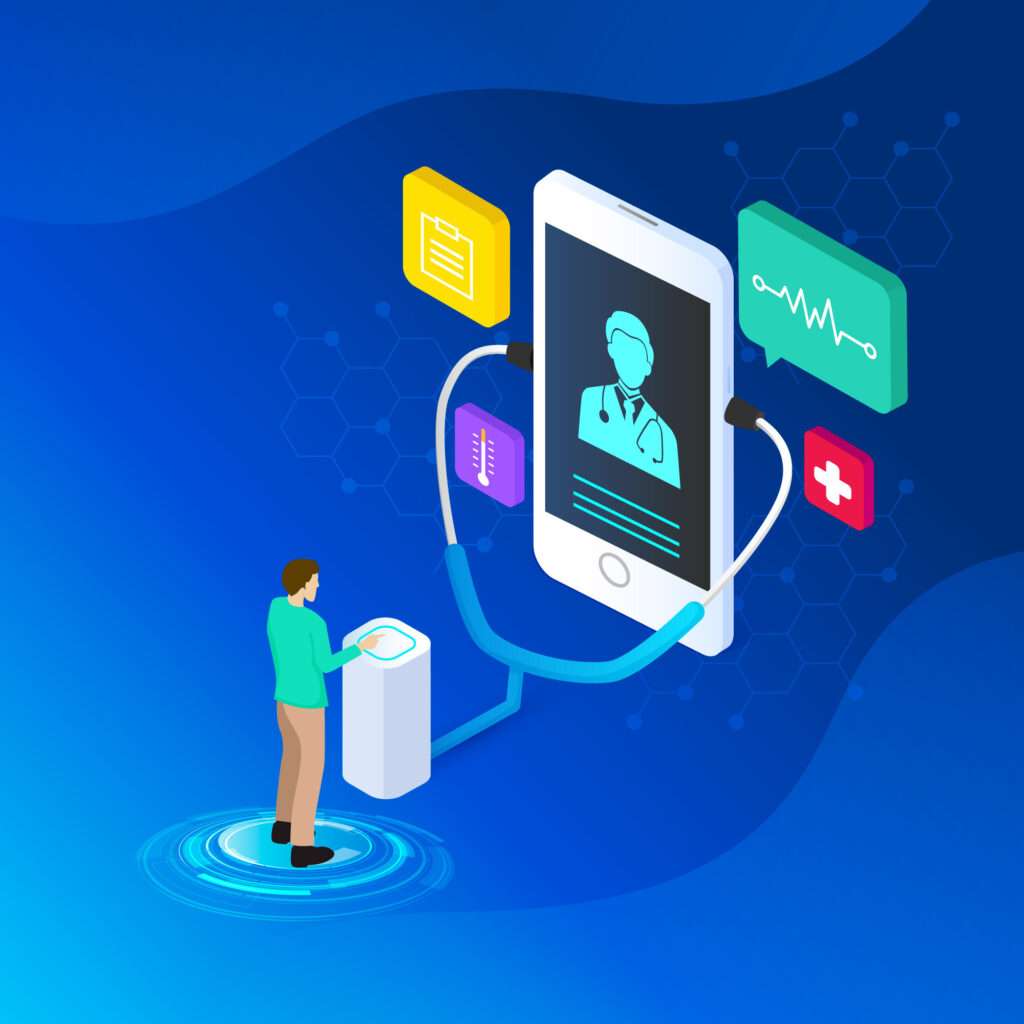Unlocking the Potential of Technology in Medicine Delivery
The traditional pharmacy experience is undergoing a remarkable evolution thanks to technological advancements. This transformative shift is paving the way for a new era of medicine delivery that is incredibly convenient and efficient. Innovation is driving this change, enabling medications to be delivered directly to people’s homes and even by air. The potential impact of tech-driven medicine delivery on improving patient outcomes and revolutionizing healthcare is thoroughly explored in the blog. This is truly an exciting time for the future of medicine delivery!
Content Overview:
- The Rise of Online Pharmacies: Convenience Redefined
- AI’s Role in Medicine Delivery: Smarter, Faster, Better
- Drone Delivery: Soaring to New Heights in Medication Delivery
- Telehealth and Virtual Pharmacies: Healthcare at Your Fingertips
- Challenges and Opportunities: Navigating the Future
- The Future of Medicine Delivery: A Healthier Horizon
- Conclusion
The Rise of Online Pharmacies: Click and Collect Your Health
Online pharmacies have disrupted the traditional model of medication procurement. With a few clicks, you can order your prescriptions, compare prices, and often have them delivered directly to your doorstep. This digital convenience has empowered patients to take control of their healthcare, saving time and reducing the hassle of physical pharmacy visits.
Benefits | Challenges |
It is convenient to order from anywhere, anytime. | There will be a few discrepancies found during prescription verification |
There will be the best deals while purchasing medications, Some platforms even offer tools to track refills and set remainders. | There will be no guarantee with the quality and authenticity of medications. |
AI: The Intelligent Assistant for Your Medicine Cabinet
Artificial intelligence (AI) is making significant strides in healthcare, and medicine delivery is no exception. From drug discovery to personalized treatment plans, AI is revolutionizing how medications are developed, produced, and dispensed.
- Drug discovery: AI technologies have the capability to efficiently process and analyze massive amounts of data to identify potential drug candidates which is a crucial step in drug discovery. This step itself take many years for a drug to be screened and then tested the ability to get converted to a suitable formulation but thanks to this groundbreaking ability, it significantly expedites the research and development of new treatments and medications. By streamlining the process of identifying and creating new drugs, AI offers promise for the advancement of more effective and efficient medical interventions.
- Supply chain optimization: Utilizing artificial intelligence (AI) enables us to optimize the distribution process of medications, reducing waste and ensuring timely delivery to patients. This technology helps in accurately predicting demand, identifying efficient delivery routes, and minimizing inventory discrepancies, ultimately improving the overall efficiency of medication distribution. This also helps improve a business by tracking refills, allowing us to immediately understand customer needs and giving us a chance to enhance the business.
- Personalized medicine: AI technology can thoroughly analyze individual patient data, allowing for the creation of customized treatment plans that can significantly enhance the effectiveness of medications. It helps in avoiding discrepancies and confusion between the prescriptions of medication which is a crucial step while delivering the medications.
- Medication adherence: AI-powered tools are a game-changer for patients, making it easier to keep track of their medication and stay on top of their doses with helpful reminders. This technology is revolutionizing medication compliance for the better.
AI’s Role in Medicine Delivery: Smarter, Faster, Better
Artificial intelligence (AI) is about to shake up the pharmaceutical industry in the most incredible ways possible. Just imagine, from revolutionizing drug discovery to optimizing the supply chain, AI is working behind the scenes to speed up processes and fast-track the development of groundbreaking treatments. By delving into massive datasets, AI algorithms can pinpoint potential drug candidates, foresee medication interactions, and tailor treatment plans to each patient’s unique needs. This means we’re on the verge of more effective, targeted therapies that could change the game in healthcare. Exciting times ahead!
Drone Delivery: Soaring to New Heights in Medication Delivery
Imagine being serviced by a drone. It’s so exciting. Yeah, this is a new trend in pharmacy delivery. The use of drone technology has significantly expanded the horizons of medical delivery, particularly in remote and underserved areas where traditional transportation methods face challenges. Unmanned aerial vehicles, or drones, can efficiently transport vital medications and medical supplies to patients in need, regardless of geographical barriers.
This innovative approach to medical delivery has the potential to overcome logistical challenges and positively impact healthcare accessibility and outcomes in these hard-to-reach areas. While the widespread implementation of drone delivery in the medical field faces safety and regulatory challenges that need to be carefully addressed, the potential benefits for improving healthcare delivery in remote areas are considerable.
Benefits | Challenges |
Drones can deliver medications faster than traditional methods | Ensuring safe and reliable drone operations |
Overcomes the geographical challenge of reaching needy patients, even during critical situations. | Adhering to airspace regulations and obtaining necessary permits. |
Here are some companies that are leading the way in tech-driven medicine delivery:
- Amazon Pharmacy: Amazon is utilizing its extensive logistics infrastructure and supply chain expertise to ensure that medications are delivered rapidly and with utmost convenience to customers. Amazon is providing services in Lockeford, California, and College Station, Texas
- Drone Up: Drone Up is at the forefront of revolutionizing healthcare delivery using drone technology. The company specializes in providing secure and efficient drone delivery services tailored to the unique needs of rural communities. Their focus on reaching remote areas ensures that even the most isolated regions have access to vital healthcare supplies and services. Based in Virginia, they conduct drone deliveries across the country with a network of over 22,000 drone pilots and its Mission Match platform that coordinates efforts. Drone Up is developing systems of temperature-regulated storage lockers where drones can pick up and drop off goods.
- Zipline: Zipline is a drone delivery service for medical supplies in developing countries. They have delivered vaccines, blood, prescriptions, and medical supplies to medical facilities and patients’ homes in the United States, Japan, Rwanda, Ghana, and Nigeria. It can fly a range of 120 miles roundtrip, and its Platform 2 drones can carry up to eight pounds.
- Medable: Medable is an innovative platform leveraging artificial intelligence (AI) to empower patients to organize and monitor their medication schedules. Additionally, it facilitates seamless communication and interaction between patients and healthcare providers, ensuring efficient and effective healthcare delivery.
Telehealth and Virtual Pharmacies: Healthcare at Your Fingertips
The advent of telehealth has revolutionized the way individuals avail healthcare services and has notably influenced the dispensation of medicine. One significant development in this realm is the rise of virtual pharmacies, which allow patients to engage with pharmacists remotely, handle their prescriptions, and receive medication consultations from the comfort of their surroundings. Advantages of virtual pharmacies include enhanced accessibility, particularly for patients residing in remote or underserved areas.
The convenience factor is paramount, as individuals can address their medication-related requirements without having to venture outside physically. Moreover, virtual pharmacies enable personalized medication management, benefiting patients from tailored support and pharmacist guidance. However, certain challenges accompany the implementation of virtual pharmacies. There are concerns regarding the privacy and security of patient data in a digital environment, necessitating robust measures to safeguard sensitive information. Additionally, validating the authenticity of prescriptions in a virtual setting poses a distinct challenge, emphasizing the need for stringent prescription verification protocols.
Challenges and Opportunities: Navigating the Future
Advances in technology offer significant promise for enhancing the delivery of medical services. Still, the healthcare industry faces several complex challenges that must be navigated to fully capitalize on these opportunities. Cybersecurity threats, the need to safeguard patient data and privacy, and the various regulatory barriers all present considerable obstacles. However, it is important to recognize that these very challenges can also serve as catalysts for innovation.
To successfully leverage the potential of tech-driven medicine delivery, developing and implementing robust security protocols and measures that can withstand evolving cybersecurity threats is imperative. Collaboration with policymakers and regulatory bodies will also be pivotal in addressing and adapting to the intricate legal and regulatory landscape. Furthermore, placing a strong emphasis on patient-centered care will be essential in guiding and shaping these technological advances, ensuring that patients remain at the core of the healthcare industry’s focus
By effectively addressing these hurdles and adopting a proactive approach to technological innovation, the healthcare sector can surmount these challenges and seize the opportunities presented by technology-driven medicine delivery.
The Future of Medicine Delivery: A Healthier Horizon
The integration of technology into medicine delivery is transforming the healthcare landscape. As advancements continue, we can expect even more innovative solutions that improve patient care and outcomes. From personalized medicine to efficient drug distribution, the future holds tremendous promise for a healthier and more interconnected world.
Key Takeaways:
– Technology is changing how we access and manage medications.
– Online pharmacies, AI, drone delivery, and telehealth are leading this revolution.
– While challenges exist, the potential benefits for patients are significant.
– A collaborative approach is essential to realize the potential of technology-driven medicine delivery fully.
Conclusion
The future of medicine delivery is filled with exciting possibilities. With the integration of cutting-edge technology and the proactive resolution of key challenges, we have the potential to build a healthcare system that is not only more efficient and accessible but also more patient-centered. This could mean streamlined processes, improved access to medical services, and personalized care that truly meets the needs of individual patients.


